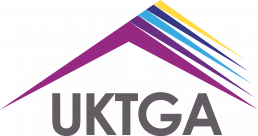UKTGA conference 2024 session proposals
Building Bridges: Innovating Together for Sustainable and Inclusive Communities
The UKTGA 2024 Conference encapsulates the essence of forging strong connections between universities and communities, utilising technology, fostering cultural diversity, and promoting sustainability. It highlights the collaborative efforts aimed at enhancing relationships and addressing challenges through innovation, cultural exchange, and sustainable practices.
The UKTGA 2024 Conference invites proposals for presentations, workshops, TED talks and panel discussions that explore innovative strategies and initiatives to strengthen relationships between universities and their surrounding communities. The conference will highlight collaborative efforts aimed at enhancing relationships and addressing challenges through innovation, cultural exchange, and sustainable practices.
Submission Guidelines:
Proposal deadline: extended to 15 August 2024
Notification of acceptance: 1 September 2024
Speakers will receive a £50 discount on the conference ticket price per speaker slot.
Please send any queries to info@uktga.org.
Conference Tracks:
Track 1 – Forging Connections: Enhancing Relationships Between Universities and Communities
Theme: Explore strategies and initiatives to enhance collaboration and mutual understanding between academic institutions and communities where our students reside.
Proposal:
- Introduction: Highlight the importance of positive town-and-gown relations for both universities and communities.
- Objectives: Discuss the goals of the conference, including fostering dialogue, sharing best practices, and identifying challenges.
Key Topics:
- Community Engagement Initiatives: Showcase successful projects that involve residents in university activities and vice versa.
- Economic Development Partnerships: Discuss how universities and communities can work together to spur economic growth and innovation.
- Social Impact Projects: Present case studies of collaborative projects addressing social issues such as homelessness, healthcare, and education.
- Conflict Resolution and Communication Strategies: Provide workshops on resolving conflicts and improving communication between stakeholders.
Conclusion: Highlight the importance of connections and how institutions can act as a catalyst for and conveners of meaningful and mindful change in town gown relations.
Track 2 – Sustainable Futures: Addressing climate and sustainability challenges through Town and Gown collaboration
Theme: Explore strategies for fostering social and environmental sustainability and stewardship within university communities.
Proposal:
- Introduction: Highlight the urgent need for universities and local communities to collaborate on sustainable development.
- Objectives: Outline the various ways in which universities are collaborating with their local communities to encourage sustainable and net zero cities.
Key Topics:
- Campus Sustainability Initiatives: Showcase innovative projects and policies implemented by universities to promote a more sustainable campus through energy efficiency, circularity and sustainable transport.
- Community Resilience and Climate Adaptation: Discuss collaborative efforts to address climate change and climate justice in our cities.
- Sustainable values and behaviours: Exploring the divide between student’s sustainability values and behaviours.
- Sustainability knowledge exchange: Exploring University-community collaborative approaches to identify solutions to sustainability challenges through knowledge exchange and creation.
- Sustainable Urban Planning and Design: Explore how universities and communities can work together to create places and spaces that support wellbeing, biodiversity, equity, climate adaptation and resilience.
- Sustainability Educational Outreach: Present models for integrating sustainability education into school curricula, community outreach programs, and public awareness campaigns.
Conclusion: Emphasize the role of education, research, innovation, and collective action in building a more sustainable future for town and gown communities.
Track 3 – The Cultural Crossroads: The shifting landscapes of student life / behaviours / priorities
Theme: Showcase the richness of cultural diversity and promote dialogue and understanding among diverse populations within university towns.
Proposal:
- Introduction: Acknowledge the cultural vibrancy and diversity of university communities and the need to foster inclusivity and cultural exchange.
- Objectives: Outline the areas aim to highlight and celebrate the wide diversity that now exists within the student population and the opportunities and challenges this brings for HEIs and community partners
Key Topics:
- Cultural shifts: Highlight changing student attitudes to; alcohol, drugs, the environment, HEIs alliances to multinational corporations, funding, ethics. Nighttime economy, death of the nightclub, quiet halls, no-alcohol events. Religious considerations.
- Diversity in Education: Discuss strategies for promoting diversity, equity, and inclusion within academic institutions, including recruitment and retention efforts, curriculum development, and campus policies.
- Interfaith Cooperation: Explore opportunities for interfaith dialogue, collaboration, and mutual respect within university towns.
- Arts and Creativity: Showcase the role of arts and culture in bridging cultural divides, fostering empathy, and promoting social cohesion.
Conclusion: Emphasize the importance of embracing diversity as a source of strength and resilience in town and gown communities.
Track 4 – Innovating Together: Harnessing tech and comms for stronger Town and Gown connections
Theme: Explore the role of technology in fostering collaboration and innovation between universities, their students and their surrounding communities.
Proposal:
- Introduction: Highlight the transformative potential of technology and embracement of comms in enhancing town and gown relations.
- Objectives: Outline the areas focus on innovative technological solutions and their impact on student and community engagement.
Key Topics:
- Digital Engagement Platforms: Showcase online platforms and tools for facilitating communication, volunteerism, and civic participation.
- Smart City Initiatives: Discuss how universities and communities are leveraging data analytics, and other technologies to create smarter and more sustainable urban environments.
- Virtual Learning and Outreach: Present examples of virtual programs and initiatives that promote education, cultural exchange, and skills development within the community / about the community.
- Ethical and Privacy Considerations: Address concerns and best practices related to data privacy, digital inclusion, and equitable access to technology.
Conclusion: Highlight the potential of technology to drive positive change and collaboration in town and gown relations while acknowledging associated challenges and responsibilities.
